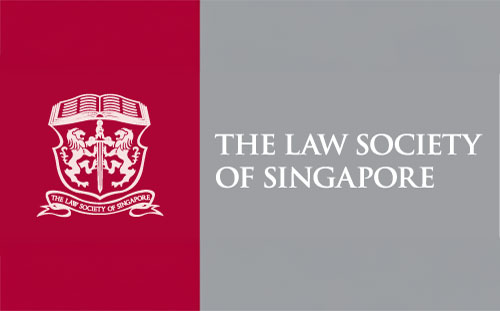Guide to Contested Divorce Process in Singapore
When you decide to pursue a divorce in Singapore, you may have many questions:
- Do I qualify for a divorce?
- What is my entitlement in a divorce?
- How will custody of my children be determined?
- How are marital assets divided in a divorce?
- How long will the divorce process take?
- What is the cost of a divorce in Singapore?
This updated guide will take you through the divorce process for a contested divorce in Singapore, explaining how both contested and uncontested divorces progress through the Family Justice Courts.
Preliminary Requirements Before Filing for Divorce in Singapore
Before you can file for divorce in Singapore, certain criteria must be met, as outlined in the Women’s Charter. Below are the key updates for the divorce process:
1. Mandatory Parenting Programme (MPP)
If you and your spouse have at least one child under 14 years old, and you cannot agree on the divorce or related matters (such as child custody or division of assets), you must attend the Mandatory Parenting Programme (MPP). The MPP is designed by the Ministry of Social and Family Development (MSF) to help you make informed decisions that are in the best interests of the children.
As of 2025, the MPP lasts for about two hours, and you only need to attend once. The court cannot proceed with your divorce application until MSF has certified your attendance. PKWA Law will assist with the application and ensure the process is as smooth as possible.
2. Jurisdictional Requirements for Divorce
The Family Justice Courts in Singapore can only hear divorce cases if either you or your spouse is:
- A Singapore Citizen,
- Domiciled in Singapore, or
- Habitually resident in Singapore for at least three (3) years before filing the divorce.
Recent updates to divorce laws emphasise that habitual residence means living in Singapore continuously and voluntarily with the intention to remain for a prolonged period.
Additionally, if you and your spouse are married under Muslim law, your divorce application must be filed at the Syariah Court.
3. Minimum Duration of Marriage
To file for divorce, you must be married for at least three years. If your marriage is shorter than three years, you need to seek court permission. The application must include an originating summons and a supporting affidavit detailing why the divorce should proceed.
Recent case law shows that the courts have become more particular about exceptional hardship as a reason for granting early divorce. Grounds such as abandonment, mental cruelty, or incompatibility may be considered.
Key Divorce Papers to File
To initiate the divorce process, your lawyer will file the following documents electronically in the Family Justice Courts:
- Writ for Divorce
- Statement of Claim (with details of the grounds you are relying on)
- Statement of Particulars (explaining the facts behind the divorce claim)
- Proposed Parenting Plan (if you have children under 21 years old)
- Proposed Matrimonial Property Plan (if you own a joint property with your spouse)
- Acknowledgment of Service
- Memorandum of Appearance
Electronic Filing of Documents: As of 2025, all divorce filings must be done electronically, and there is no longer the option for paper filings. This update speeds up the process, allowing quicker submission and review of documents by the courts.
Serving Divorce Papers
Once your lawyer files the divorce papers, they must be served on your spouse to officially notify them of the proceedings. As of 2025, the methods for service have been streamlined:
- Personal Service: Handed directly to your spouse by an authorized process server.
- Registered Post: Sent via registered mail, with the Acknowledgment of Service form returned to the lawyer.
- Electronic Service: If your spouse’s lawyer has agreed to accept service electronically, this is an increasingly common method for urban professionals.
Enforcement of Service: The courts now more strictly enforce service rules. If your spouse ignores the papers or fails to acknowledge them, the court will proceed with the case without their participation, so it is important to ensure that the papers are properly served.
Contested vs Uncontested Divorce
Uncontested Divorce
If both parties agree on the divorce terms (including custody, division of assets, etc.), the divorce can proceed uncontested. You and your spouse must file a Request for Setting Down Action for Trial to inform the court that the case is ready for an uncontested hearing. The hearing will be held in chambers (private), and once everything is in order, the interim judgment will be granted.
Contested Divorce
In cases where one party contests the divorce or the grounds for it, the process becomes more complex. Your spouse can file a Defence or Defence and Counterclaim within 22 days after being served. Once the Defence is filed, the court will set a case conference date to discuss the matter.
If the case does not settle at this stage, it will proceed to a contested divorce trial, which can take several months, depending on the complexity of the issues.
Ancillary Matters in Divorce
Once the court grants an interim judgment, the next stage is dealing with ancillary matters, such as:
- Child Custody
- Division of Assets
- Spousal Maintenance
If the parties cannot agree, the court may order an ancillary matters case conference, which is more structured and faster as of 2025. If mediation fails, the case moves to a contested ancillary matters hearing.
Final Judgment and Remarriage
The Final Judgment is granted once the ancillary matters are resolved. The court will issue a Certificate of Making Interim Judgment Final after three months, which is required before remarrying.
Contact Us for Your Contested Divorce
A contested divorce can feel overwhelming, especially when major decisions about children, assets, and the future are at stake. Our experienced family lawyers provide clear strategies, steady support, and strong representation at every stage. We focus on protecting your rights while helping you work toward outcomes that are fair and practical.
Contact us today to speak with an experienced divorce lawyer.
Fixed, clear & transparent fees
$1,590
No children, property or maintenance
$2,590
With children, property and maintenance


